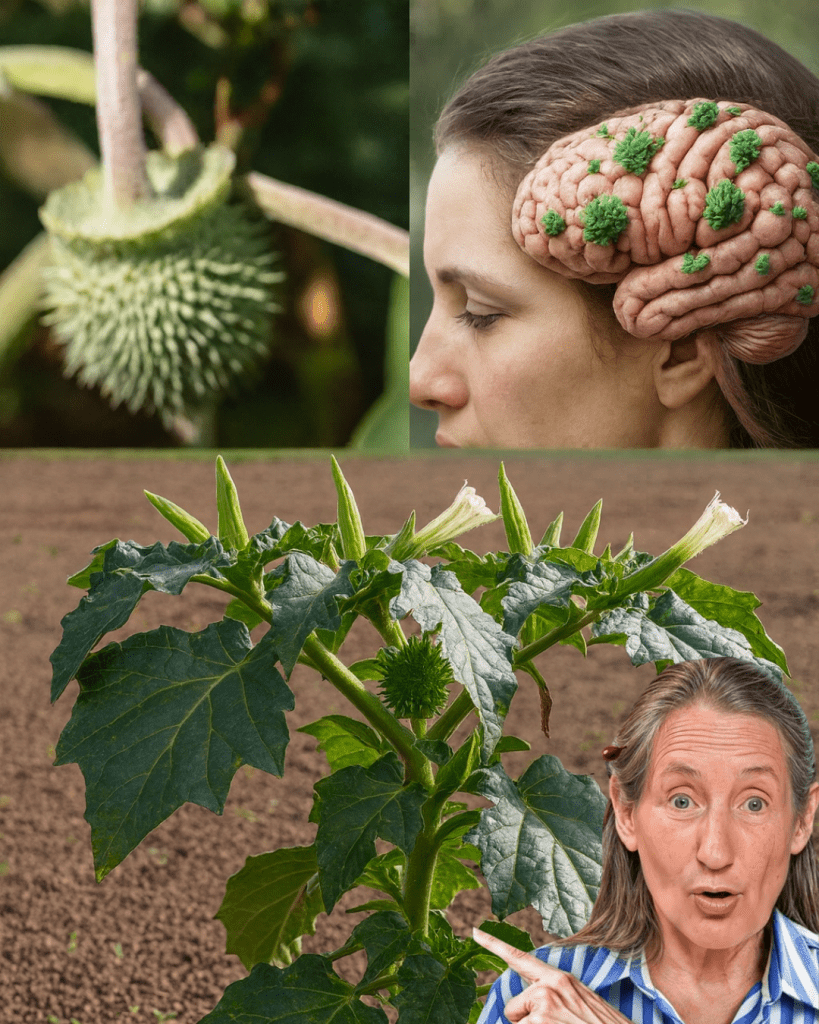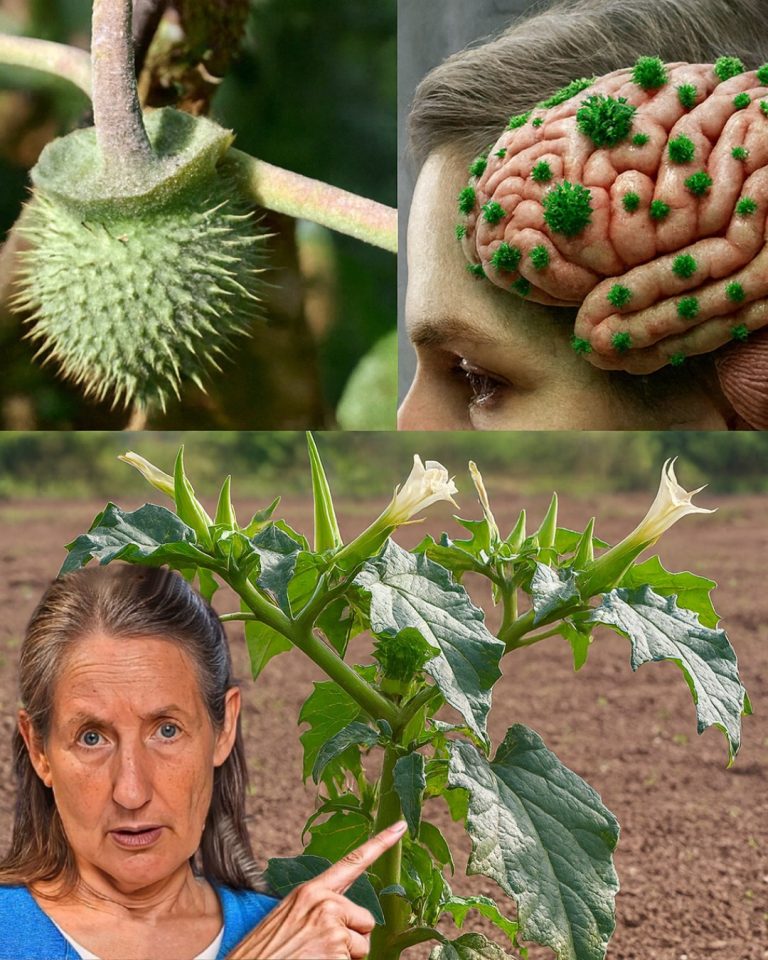Avoid planting Datura in home gardens, especially if you have children or pets.
Wear gloves when handling any part of the plant to prevent skin absorption.
Dispose of Datura safely by burning or sealing in plastic bags to avoid accidental exposure.
📚 For Parents and Educators:
Teach children to avoid wild plants and their seeds.
Warn teenagers about the life-threatening risks of recreational Datura use.
🏥 In Case of Suspected Poisoning:
Seek emergency medical attention immediately.
Do not induce vomiting unless instructed by a poison control expert.
Provide details about the plant part and amount consumed for proper treatment.

✨ Why Datura Captivates and Cautions Us
Datura stramonium is a plant of stark contrasts—its beauty and historical significance draw us in, but its toxicity demands caution. It’s a reminder of nature’s complex balance, where healing and harm often coexist. For those fascinated by botanical medicine, Datura is a powerful example of why knowledge and respect are essential when working with plants. Its striking flowers may tempt you, but their hidden dangers make it a plant best admired from a distance.
🌍 Respect Nature’s Double-Edged Gift
Datura stramonium isn’t just a weed—it’s a botanical enigma that commands awe and caution. If you spot its trumpet-shaped flowers in your garden, don’t be quick to touch or taste. Instead, remove it safely and educate others about its risks. By staying informed, you can appreciate its fascinating history while protecting yourself and loved ones from its dark side. Share this knowledge, and let Datura remind you that even the most beautiful plants can hide a dangerous secret.
